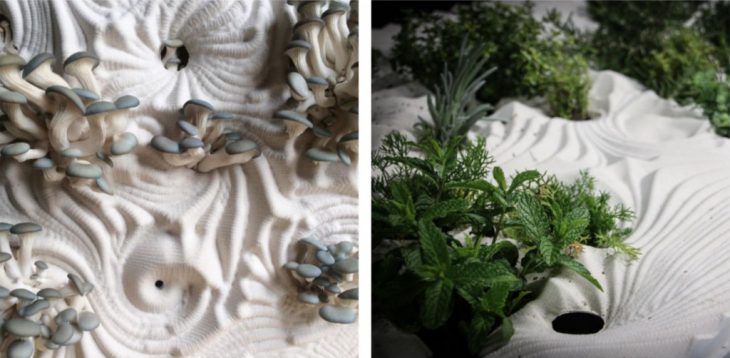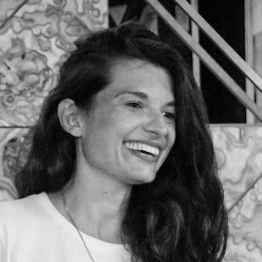DESIGN WITH LIVING SYSTEMS
BEYOND HUMAN CENTERED DESIGN
Seminar Faculty: Chiara Farinea & Lana Awad
Faculty Assistants: Fiona Demeur, Andrea Conserva & Ilaena Mariam Napier

Image Credits: Advanced Architecture Group
During the last centuries cities have been planned for humans, excluding nature if not for decorative purposes. Today we have realized that living systems have the potential to provide cities with multiple ecosystem services, such as food, materials, energy production, climate control, water purification, or pollination. However, cities are hostile environments to nature, due to phenomena such as the heat island effect or pollution. How can we transform our cities in porous environments to re-integrate nature? How can digital technologies help us integrate living systems? Can we build the future of cities through a nature-based approach?
The seminar will work on a real case study in the city of Porto. The students will work on 6 projects/installations for 6 schools, developing structures for cultivation, renaturalization and pollination. The structures will be composed of areas for plants to grow and bio receptive ceramic surfaces devoted to microclimate regulation and to host fauna (as insects or microorganisms). The structures will be developed within the framework of a participatory process with Porto citizens, therefore the students will have to take into account the users’ wishes and preferences. The students will develop the installation concepts, the constructive system and the bioreceptive ceramic surfaces with different techniques such as molding and 3D printing.

Image Credits: Advanced Architecture Group
Learning Objectives
At course completion the student will:
- Understand the basics of integration of nature in the urban environment, such as parameters needed for plants growing or the requirements to create fauna shelters;
- Be able to develop urban structures for renaturalization using parametric programmes and digital fabrication techniques;
- Be capable to design a real-situation project in the context of participatory processes.
Faculty:

Phd Arch Chiara Farinea is currently Head of European Projects and Head of Building with Nature Based Solutions Research at the Advanced Architecture Group Department at IAAC, her position includes being a coordinator and scientific personnel in several EU projects targeted at education, research, development and implementation and being faculty in IAAC educational programs.
She developed several experimental projects related to the integration of living systems in urban environments through the use of advanced technologies for design and fabrication. The projects have been exhibited in international events such as the Venice Biennale and integrated in real environments such as public spaces in Barcelona.

Lana Awad is a Jordanian architect and researcher specializing in digital fabrication in Architecture.
She holds a Bachelor’s degree of Architecture from the American University of Sharjah (UAE, 2010) and a Master Degree in Advanced Architecture from IAAC (Spain, 2013), specializing in digital fabrication and large-scale additive manufacturing in architecture.
Her work since has focused strongly on digital fabrication within social studies and political contexts.
She was the Creative Director for Refugee Open Ware, a global innovation consortium aimed at employing advanced technology for the advancement of human rights in conflict zones. After which she became Project Manager for Atta33, a digital fabrication laboratory and co-making workshop in Poblenou.
Her personal projects range from conceptual VR projects on identity and empathy (The Machine to be Another) to designing 3D printed prosthetics for Syrian refugees. More recently she has been collaborating with several architecture offices including External Reference Architects, Cloud9, and Built by Associating Design.